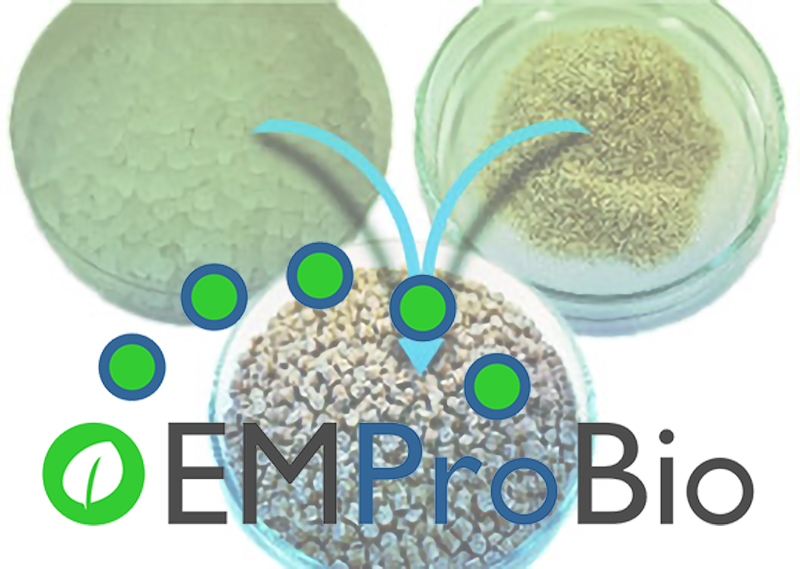Environmentally friendly production of plastics

Climate change, one of the greatest challenges of our time, requires a drastic reduction in the emission of climate-damaging greenhouse gases and the consumption of natural resources. This has a particular impact on the manufacturing industry - especially on the production of plastic parts, as their production is still very resource-intensive today.
In the EMProBio research group (“Energy- and material-efficient production processes for biogenic plastics”), the five partner institutions of the Thuringian Center for Mechanical Engineering (ThZM) are working on technologies and processes to reduce carbon dioxide emissions in all phases of the life cycle of plastic components and, in particular, to make their production more environmentally friendly. The central approach is to increase energy and resource efficiency in production.
Resource-intensive materials are to be replaced by so-called biogenic composites made from renewable raw materials, which consume less energy and resources and also bind carbon dioxide. Composite materials such as fiber-reinforced plastics are being used more and more frequently, particularly in lightweight construction. In addition to technical fibers made of glass, carbon or aramid, natural fibers from biological sources such as flax, hemp, jute or wood are becoming increasingly important. The focus of the EMProBio project is therefore on biogenic plastics: Plastics are to be combined with natural materials such as plant fibers. The aim is to create components that are not only durable but also environmentally friendly.
In order to meet the practical requirements of small and medium-sized plastics processing companies in Thuringia, the project focuses on materials that are commercially available. An industrial advisory board made up of Thuringian companies from the plastics sector and experts in climate neutrality and sustainability will ensure that the research is closely aligned with the needs of industry.
As part of the research group, ifw Jena will deal with the technical bonding challenges that arise when processing the resource-saving materials. The research work will focus on the selection of bio-based adhesives and the qualification of biogenic plastics with regard to adhesive strength and ageing resistance. The environmentally friendly separability and reusability of bonded biogenic assemblies is also being investigated.
The coordinator of the research group, Prof. Stephan Husung, Head of the Department of Product and System Development at Ilmenau Technical University, is confident that he can help Thuringian companies to expand their business models and gain competitive advantages: “Our research work will turn Thuringian plastics processors into quality suppliers of biogenic plastic components, with a significantly broader range of services and products. For these small and medium-sized companies, the Thuringian Center for Mechanical Engineering will be the point of contact for resource-conserving production and the corresponding balancing of resources with the expertise we are developing in the EMProBio project.”
In addition to ifw Jena, the Ilmenau University of Technology, Schmalkalden University of Applied Sciences, Ernst Abbe University of Applied Sciences Jena as well as GFE - Gesellschaft für Fertigungstechnik und Entwicklung Schmalkalden e. V. are part of the research group.


